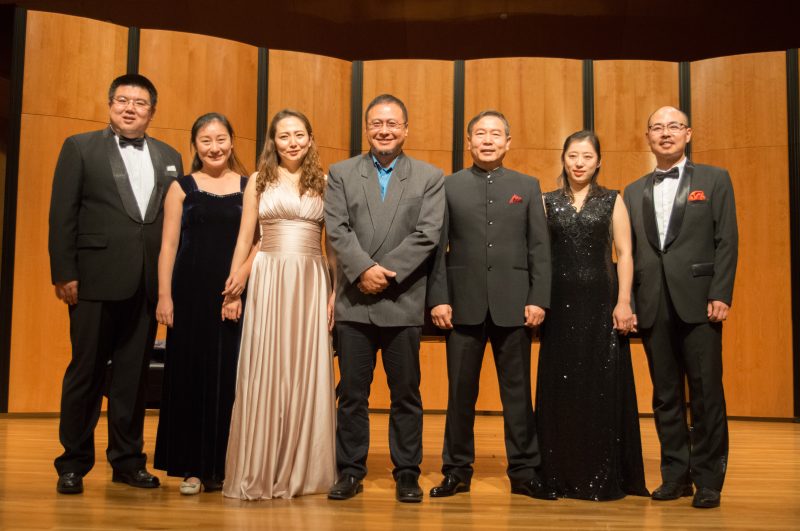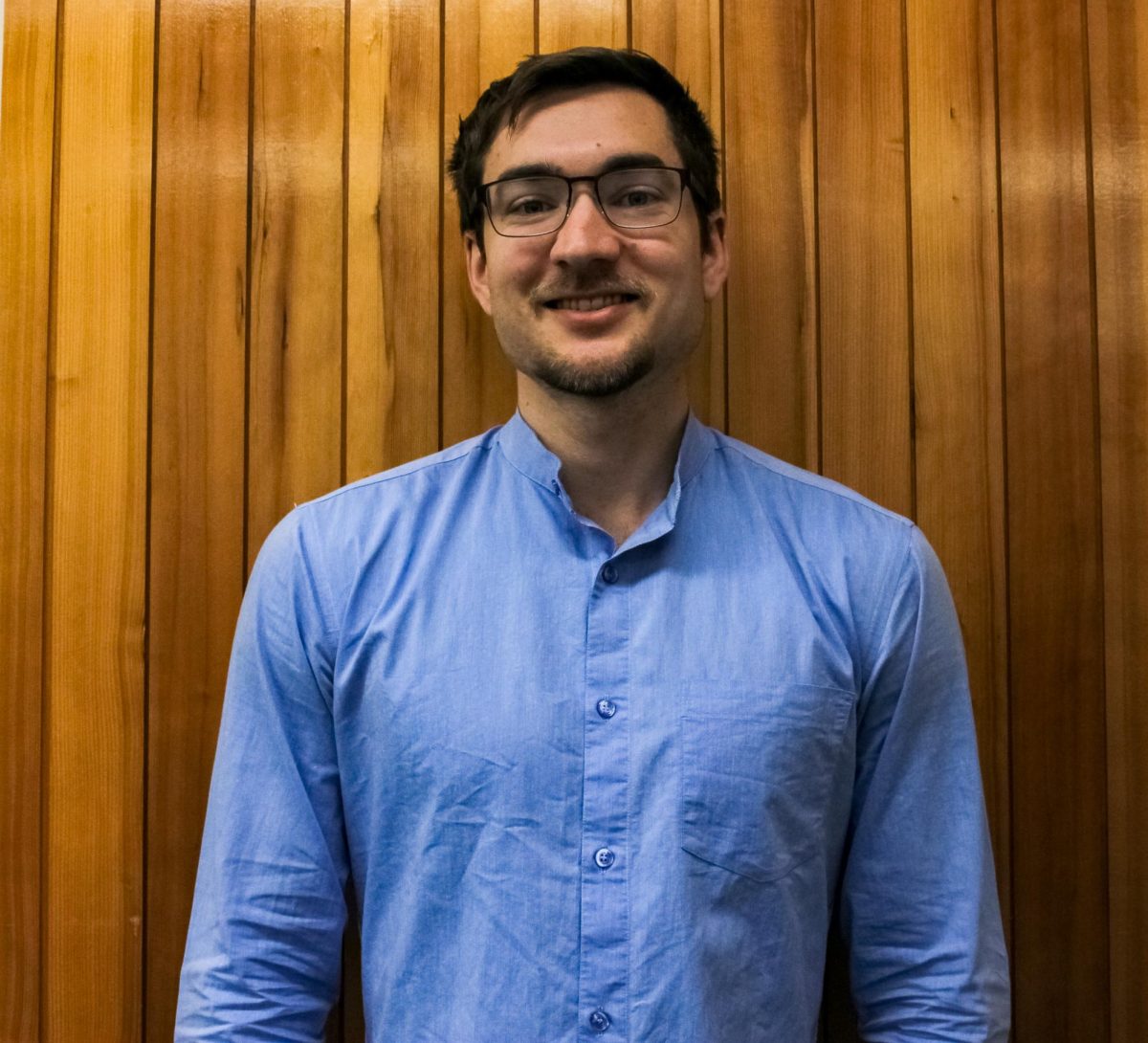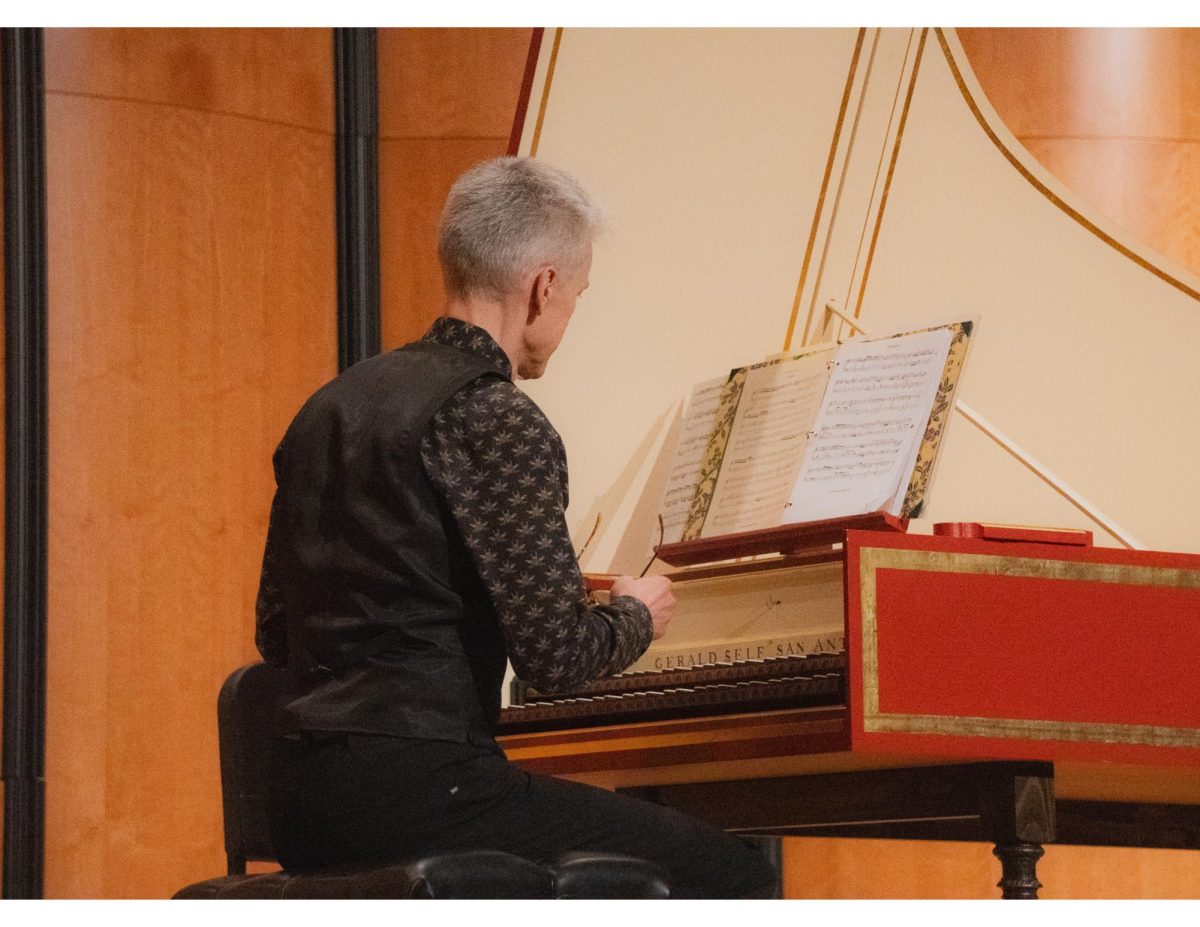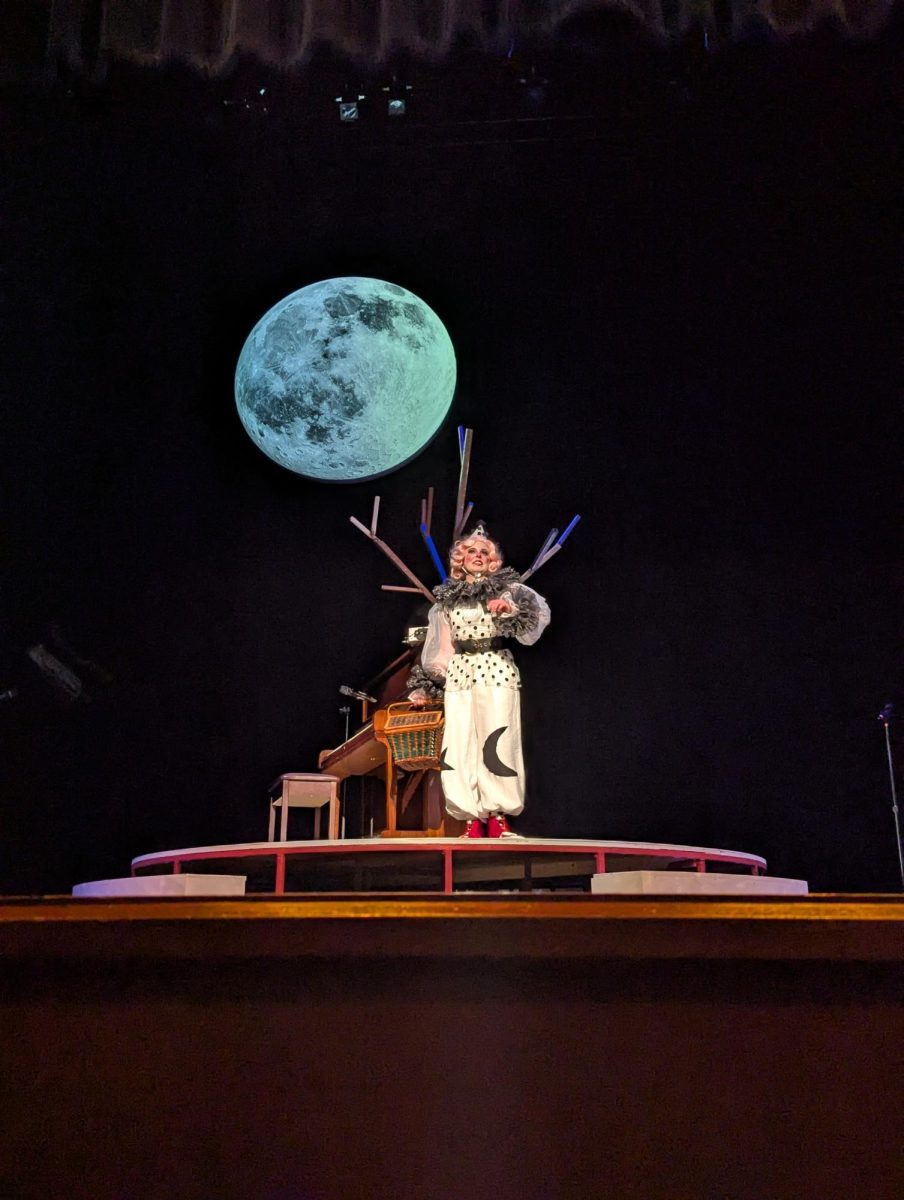The International Arts Vocal Recital held in Ruth Taylor Recital Hall showcased how vocal performances are capable of telling stories and immersing audiences in new cultures. I am in no way familiar with Chinese music or language, but I can definitely say that each and every song performed left me speechless and wanting more.
Skilled musicians from the Music School of Henan Polytechnic University, a school of mines in China’s Henan province, performed in the Nov. 19 recital. The recital focused on showcasing the evolution of Chinese music through different styles of Chinese art songs, all of which were brought to life by the performers.
The performers themselves were all extremely talented, each with their own presence when they took the stage. There were a total of six performers: four vocalists and two pianists.
XingXian Li, a male tenor vocalist, and Jingjing Zhao, one of the pianists, began the recital by performing three short Chinese folk songs titled “A Distant Place,” “MA-YI-LA” and “Water Flowing in the River.” Li’s vibrant vocals mixed with Zhao’s piano-playing ability immediately had me hooked and left me awestruck at the sight of their talent.
In a mere five minutes, Li and Zhao had the whole audience entranced by the melodic sound of Chinese music.
The recital continued beyond Chinese folk songs and moved toward what they referred to as ‘Chinese art songs.’ Junna Liu, soprano vocalist, opened up this new portion of Chinese music with a song written by Tzu Huang titled “Thoughts in Spring.” On the piano was Xiangliangzi Ning, who was hitting every note perfectly without struggle nor hesitation. Compared to the first Chinese folk songs that were played, this piece held a different structure in terms of rhythm, showcasing the evolution of Chinese music while continuing to exemplify Chinese culture.
As the music continued to play, I looked around and saw that everyone in the audience was mesmerized by the nature of each and every performance that came. Every song, although from different times and with different tempos, shined at demonstrating the complexity and uniqueness of Chinese culture, while simultaneously showing off the immense talent found in Chinese music.
The last portion of the recital revolved around the art songs in the Chinese New Era, and it was during this portion that I heard my favorite performance during the recital. The very last song was written by Cho Fong Zheng and titled “I Love You, China.” It showcased all the three male tenor voices and the single female soprano voice coming together in one melodic harmony. Pianist Ning played for this song and led the rest of the performers through the incredible piece.
The song started off slow, with only one voice, before progressively growing louder as the rest of the voices on stage joined in. Seeing and hearing each individual voice was one thing, but hearing all four vocalists — Li, Zhao, Liu and the third male tenor, Di Dong — come together to form a captivating harmony was unreal and left me with goosebumps. The way each voice seamlessly blended with the other was simply spectacular and was an amazing way to end the recital.
It was enthralling to experience music from a culture that I am not familiar with, but it was even more amazing hearing the evolution and changes that have gone into shaping a culture’s music and values.
I would definitely recommend attending other international art recitals and performances, for they offer a great way to learn bits about a culture and a piece of what makes a culture so unique.







